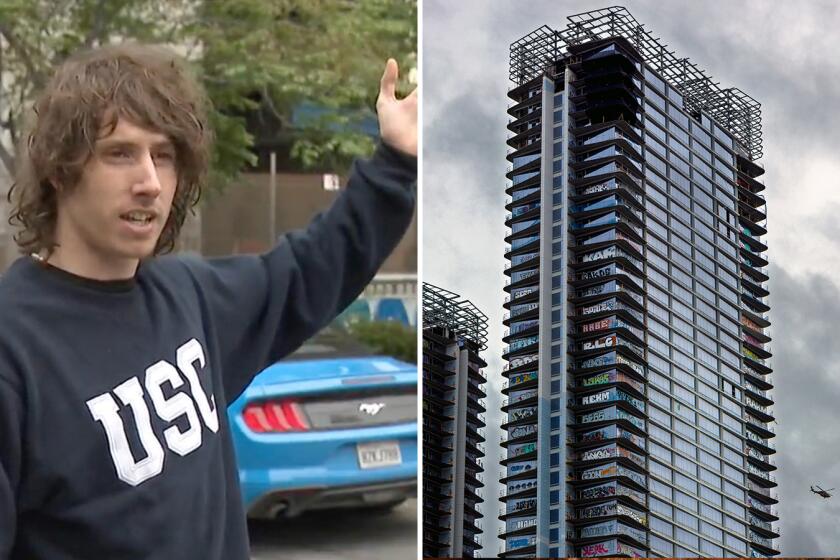Board Delays Vote on Compromise Smog Plan
A compromise anti-smog plan for San Diego County that does not satisfy many environmentalists, public health groups, businesses and industries again went before county supervisors Wednesday, but a vote was delayed for three weeks.
During two hours of testimony, the Air Pollution Control Board’s plan was assailed by some for promising to do too little to reduce the county’s severe smog problem.
“We have serious concerns about its effectiveness,” said Jan Cortez of the American Lung Assn. of San Diego and Imperial counties.
Barbara Massey, a citizen who helped develop an earlier version of the proposed air quality plan, told supervisors the compromise undermines the effort to reduce smog.
“This is not a game to see how little we can improve air quality,” she said. “I would hope that you wouldn’t play politics with the region’s health.”
Representatives from commerce and industry were generally pleased that the plan has been toned down to make it more compatible with similar plans elsewhere in the state. But although some representatives advised supervisors to approve the plan, they still had serious criticisms.
Christopher Neils of the Greater San Diego Chamber of Commerce said the plan’s strong emphasis on making the private sector promote car-pooling for workers “makes a limited contribution to clean air.”
Rather, he said the way to more effectively fight smog is to improve vehicle emissions inspections, advance mass transit and crack down on unregulated smog-producing vehicles here from Mexico.
Other representatives from business and industry faulted the plan for seeking to burden major employers with the expense and responsibility for creating car-pool programs for workers. And they objected to making non-car-pooling employees pay to park at their jobs.
Imposing such parking fees, said Neils, “is very difficult, very unwieldy (and) you have problems with labor unions.”
However, the private sector was generally pleased by the compromises that air pollution officials have urged supervisors to adopt.
A major compromise would make businesses with more than 100 workers adopt ride-sharing programs. Initially, that requirement in the plan would have applied to businesses with more than 10 employees.
Further, ride-sharing requirements would affect employees who come to work between 6 and 10 a.m. The earlier proposed plan would have required car-pooling around the clock.
Supervisors wanted more time to study the complex plan before voting. However, they took action on a small part of the proposal.
Besides car-pool requirements, the anti-smog plan also seeks tougher controls on industrial emissions and other sources of pollution like gas-fired home heaters.
The plan had required solar heaters to be put in homes that change owners, but supervisors voted, 4 to 1, to put that provision on hold until 1995.
More to Read
Start your day right
Sign up for Essential California for news, features and recommendations from the L.A. Times and beyond in your inbox six days a week.
You may occasionally receive promotional content from the Los Angeles Times.






